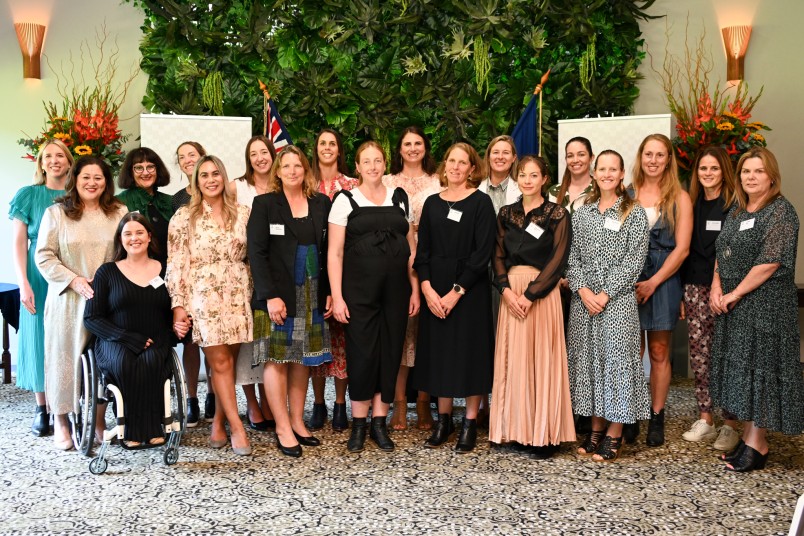Rau rangatira mā, e huihui nei, tēnei aku mihi nui ki a koutou. Kia ora tātou katoa.
I specifically acknowledge:
- Nicki Nichol, CEO; and Liz Dawson, President of the New Zealand Olympic Committee
- And of course the 2024 NZOC Wāhine Toa graduates
Tēnā koutou katoa.
It is my pleasure to welcome you to Government House Auckland for the graduation of the 2024 New Zealand Olympic Committee Wāhine Toa programme.
I would like to begin by acknowledging another wāhine toa that the NZOC and I share as kuia: Ranui Ngarimu. I note she has recently completed a very special kākahu, Te Hono ki Matariki, joining Te Mahutonga, to be worn by our flagbearers at the upcoming Paris Olympics. I am very much looking forward to seeing these beautiful kākahu signalling the arrival of the New Zealand team at the Welcoming Ceremony on the banks of the Seine.
Historically, when women’s sport is given a supportive environment in which to thrive, it inevitably it does. In the United Kingdom during the First World War and into the 1920s, women’s football became the most-watched format of the game. At its peak, 53,000 people filled a stadium to watch a match between Dick, Kerr Ladies F.C. and St Helens Ladies in Liverpool.
Women’s baseball in the United States was also hugely successful during the Second World War with the creation of a dedicated league – and at the height of its popularity, it attracted 900,000 spectators a season.
Sadly, history shows us that this momentum was soon lost. Very soon after that record-breaking Dick, Kerr and St Helens game, the Football Association decided to ban women from playing on grounds they regulated – a decision that was emulated here in New Zealand, and one that lasted for fifty years.
Despite these backward steps, I am heartened to see that now, in Aotearoa, and indeed around the world, once again, we are entering a new and exciting chapter for women’s sport.
New Zealand has recently played host to three women’s world cups – cricket, rugby and football – with many matches breaking attendance records. In America, more people watched last month’s women’s NCAA basketball final between Iowa and Connecticut, than watched the men’s 2023 NBA Finals.
I appreciate there will be many contributing factors as to why women’s sport is returning to an equivalent level of success it once enjoyed over 100 years ago. However, I don’t believe it is a coincidence that at the same time, we are increasingly seeing women represented in sports governance, making decisions that affect the game from a grass-roots level, right to the very top.
Earlier this week, Dame Sarai Bareman – who was appointed the first-ever FIFA Chief of Women’s Football – was here to receive her Damehood, recognising her immense contributions to the game. Diana Puketapu-Lyndon and my predecessor, Dame Patsy Reddy, are serving as the first women Chairs of New Zealand Cricket and Rugby respectively.
To that end, I am proud to congratulate the graduates of the New Zealand Olympic Committee Wāhine Toa Programme, as you have chosen to continue your careers in sport by providing valuable perspectives, guidance, and leadership across your chosen fields.
New Zealand Olympians have always been outstanding models for inspiring others to strive towards Olympic greatness, and to have the chance to wear the silver fern with the pride it commands.
It takes both inspiration and years of tremendous effort, along with the support of family, friends, and coaches, to realise the Olympic dream. Throughout your careers in sports governance, I have no doubt you will help enable many future athletes by being outstanding leaders, advocates, and mentors.
Mā mua ka kite a muri, mā muri ka ora a mua. Those who lead give sight to those who follow, those who follow give life to those who lead. I look forward to following your journeys, and I wish you all the very best.
No reira, tēna koutou, tēna koutou, tēna koutou katoa.
For more on this event, click here: 2024 Wahine Toa Graduation.

